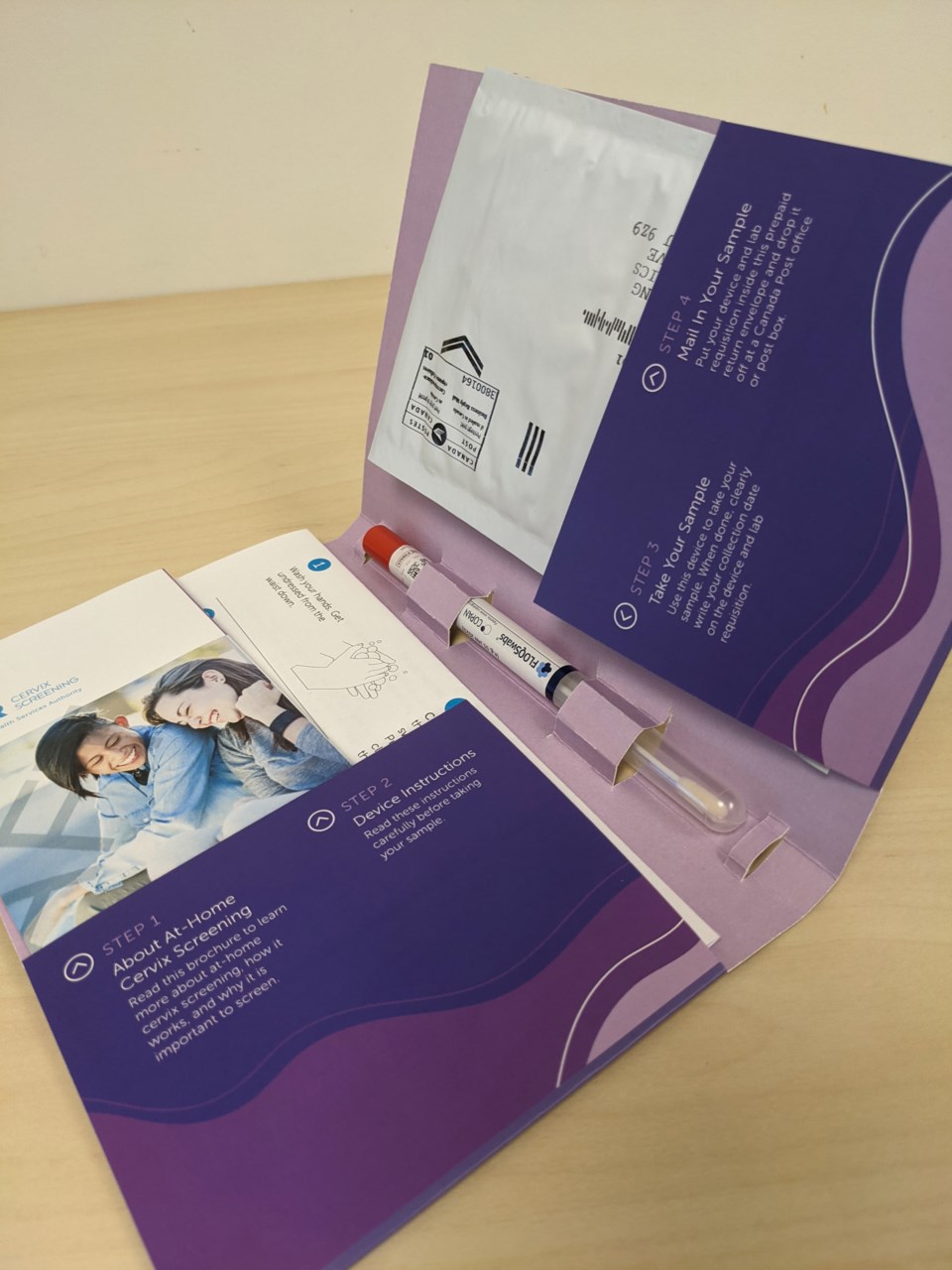BC Cancer is now offering at-home cervical screening kits to select communities in the province to make it easier for people to access HPV testing.
Previously, select participants were invited by mail to do a self-screening, but now anyone with a cervix who lives in a participating community and is between the ages of 25 and 69 — and overdue for a pap smear by three years or more — can request the test at 1-877-702-6566.
The pilot program has been offered on the lower Sunshine Coast (as well as the Tri-Cities, New Westminster, Port Alberni and Central Vancouver Island) since it launched in December 2021. As of Sept. 9, about 400 at-home screening kits have been requested and/or completed by Sunshine Coast residents, BC Cancer’s affiliate scientist Dr. Gina Ogilvie told Coast Reporter.
“Although it’s at home, it’s really critical to have support engagement by the primary care community,” Ogilvie said. “The Sunshine Coast physicians and nurse practitioners were very keen to participate. They saw the real value of it, in terms of improving coverage for screening…” and were willing to follow up with their patients.
The at-home option is helpful to people who have a hard time undergoing pelvic examination, those who have busy schedules and people living in rural or remote communities who have to travel to see their doctor, she said. When the program launched last December, Minister of Health Adrain Dix said, "With at-home screening, people in need of cervix screening will face fewer barriers which may include cultural issues, trauma, inconvenient clinic hours, transportation concerns, and the need for time off work or child care."
Why screen for HPV?
HPV, the human papilloma virus, causes 99.5 per cent of cervical cancers. Testing for HPV helps assess a person’s risk of developing cancer and can be preventative. HPV is a common infection, Ogilvie says, and can often clear up on its own.
A positive HPV test does not mean you have cancer. “It’s more of a marker of sexual activity,” Ogilvie says, and indicates the virus could potentially lead to cell changes, which could become persistent and potentially become cancer. It’s a long pathway, and as most HPV infections resolve themselves, “it does give us a clue as to who we want to just keep an eye on and check that they don't have any further development.”
Ogilvie says only about five to eight per cent of the at-home screening tests will require follow ups with a physician — and self screening is more accurate than pap smears, which have a higher false negative rate (then requiring more follow-up testing than necessary).
Through the program, “We can offer reassurance to the majority of folks that they don't need screening for another five years, and they haven't had to take that huge amount of time. That huge amount of time is a huge barrier,” she says.
Those who do require follow-ups will be prioritized and able to access more targeted appointments since the tests have already indicated what needs to be addressed.
How it works
Once the patient requests and receives the kit, they self-collect the sample where they feel most comfortable, either at home or in their physician’s office. If the sample is HPV positive, the patient will need a colposcopy or follow-up test with their family doctor to see if they need further testing.
“What this does, and part of what I think we aspire to for all innovations to do, is not only improve accuracy [and] you have the patient at the centre in the conversation, but then it also allows busy practitioners to really focus on things that only they can do. And we've learned with self collection that women are able to self-collect very competently, very accurately, as accurate as a clinician-collected specimen. So then the practitioners can then focus their time on those priorities that they otherwise can't get to,” Ogilvie said.
Ogilvie says there’s a lot of potential for self-collection to be used in the health field, such as for other cancers and for sexually transmitted infections (STIs). Get Checked Online already helps people request lab testing.
“It also really builds on patient autonomy,” she said, and can be empowering for people — especially women — to take control of doing such a test on their own terms and timeline.
Learn more and request a self-screening test at https://screeningbc.lpages.co/



